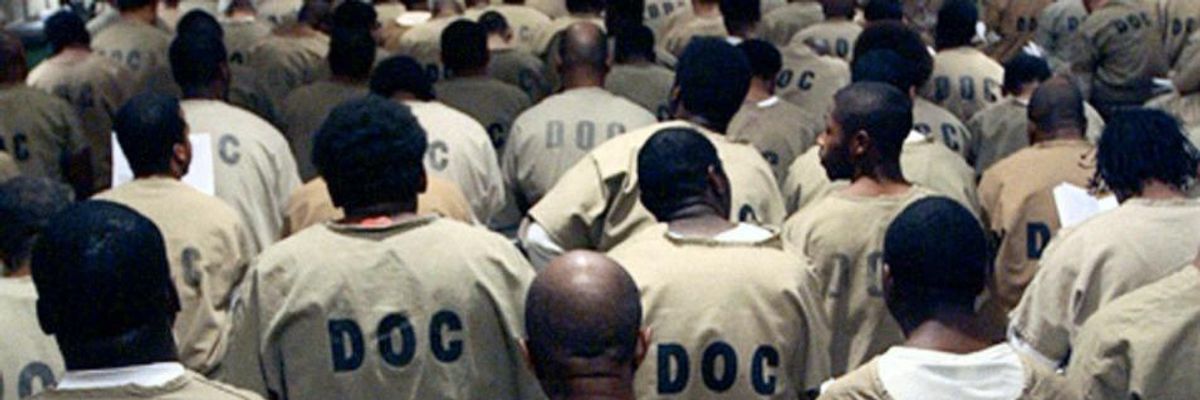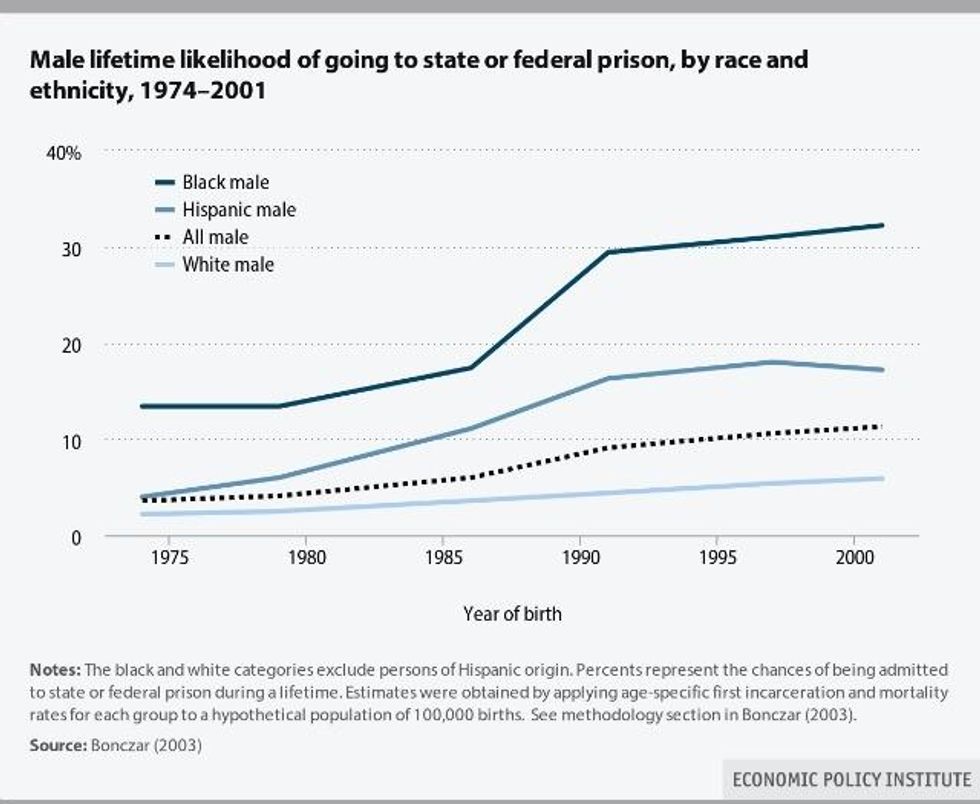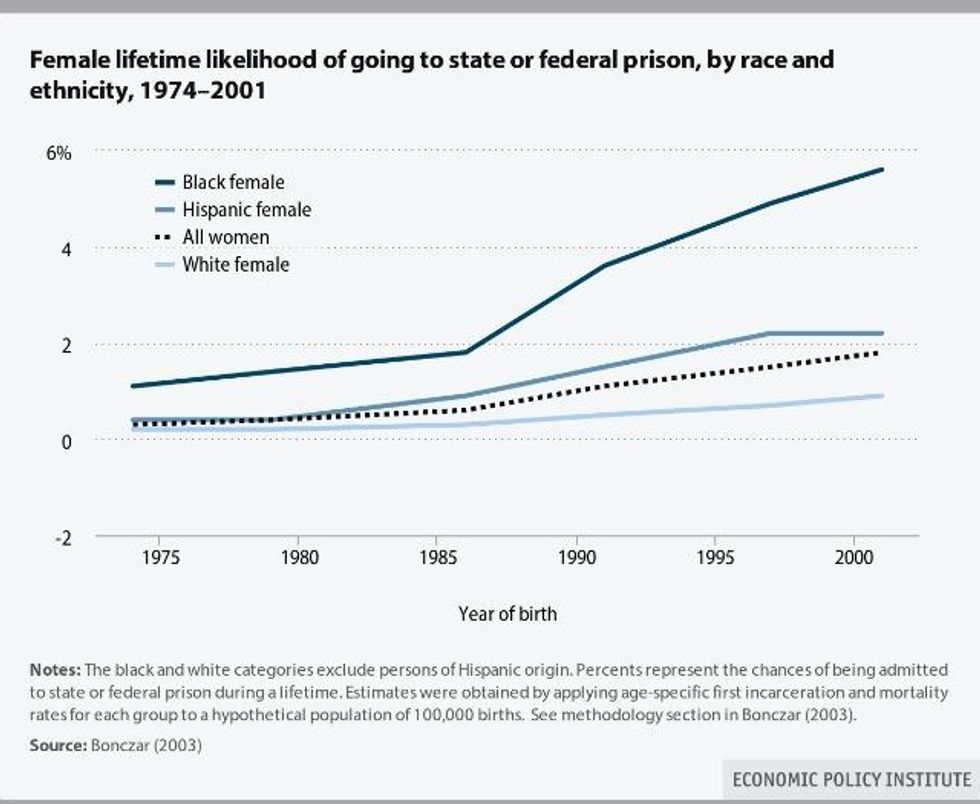The disproportionate mass incarceration of people of color in the United States, particularly of black men, is no accident, finds a new report from the Economic Policy Institute. It stems from deep racism in U.S. society--enacted through public policy, policing, a dual court system, media representations, and more--and constitutes "one of the most pressing civil rights issues of our time."
Entitled Where Do We Go from Here? Mass Incarceration and the Struggle for Civil Rights, the analysis was written by Robynn J.A. Cox, assistant professor at Spelman College. Published Friday, the report comes amid mounting nationwide protests to reclaim the legacy of Martin Luther King Jr in the lead up to the federal holiday, at a time of protracted and large-scale movements to declare Black Lives Matter.
"Failure to address the legacy of racism passed down by our forefathers and its ties to economic oppression will only result in the continued reinvention of Jim Crow."
"As we prepare to celebrate Martin Luther King Jr's legacy, it's essential that we acknowledge how a biased criminal justice system and the subsequent mass incarceration of African Americans is wreaking havoc on the black community and preventing us from reaching King's dream," said Cox.
"For example, although the right for blacks to vote has been enforced since the Voting Rights Act of 1965, mass incarceration policies have effectively taken this entitlement away from numerous African Americans," Cox continued. "It is painfully obvious that the dream for civil rights has yet to be fully realized and cemented."
Over the past 40 years, U.S. incarceration has exploded, the report notes, not due to a corresponding increase in severe crimes, but due to society's "collective choice to become more punitive." As is well-documented in numerous studies, including a landmark report from the National Research Council (an arm of the National Academy of Sciences) released last year, people of color have been disproportionately targeted by such punitive measures.
The following interactive graph from EPI illustrates this trend for both male and female populations.
According to EPI's report, the tough-on-crime laws responsible for this spike "could be maintained only because of the dual legal system developed from the legacy of racism in the United States." This deep racial bias "allowed for society to avoid the trade-off between societies 'demand' to get tough on crime and its 'demand' to retain civil liberties, through unequal enforcement of the law."
"In essence," the report continues, "tying crime to observable characteristics (such as race or religious affiliation) allowed the majority in society to pass tough-on-crime policies without having to bear the full burden of these policies, permitting these laws to be sustained over time."
Furthermore, the report describes how racism has caused society to respond to poverty and inequality using punitive criminal justice measures, rather than public policies to invest in disenfranchised and marginalized communities. "At the same time," states the analysis, "many communities attempted to benefit economically from mass incarceration by using prisons as a strategy for economic growth, making the incarceration system eerily similar to the system of slavery."
"Systemic racial bias has led to the development of a dual criminal justice system, which is at the root of our mass incarceration epidemic," said Cox. "Without racial bias, it is unlikely that the United States would have seen such unprecedented growth in incarceration."
"Failure to address the legacy of racism passed down by our forefathers and its ties to economic oppression will only result in the continued reinvention of Jim Crow," Cox added.



